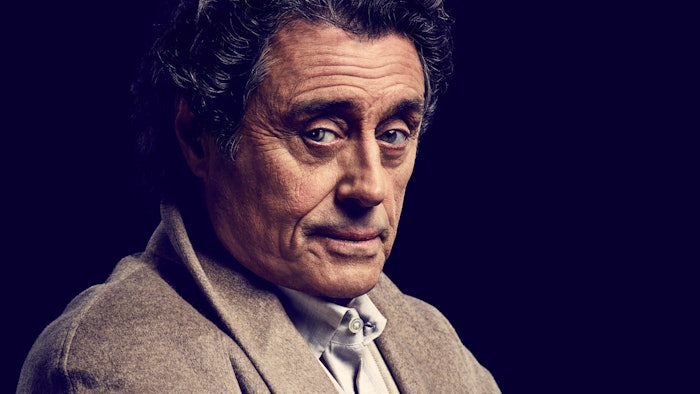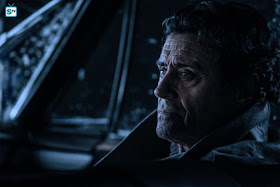Can old and new exist side by side? I'd wager that many of you would say sure, of course it can. After all, you might argue, I have a laptop and a smart phone but I also kept my landline. Alright, I counter, but how often do you use that landline? Is it a part of your everyday life? Or is it there because you've always had a landline and to not have it would feel strange, alien, and wrong somehow in a way you can't quite put your finger on. That's the power of nostalgia. The landline phone isn't in and of itself important, but it has a symbolic resonance of a different time in your life when the landline was important; when it was the height of technology and to be without one would be as absurd as being without your Android or iPhone now. Evolution is key to survival; Darwin was right. The smartest and fittest among us live on to see another sunrise and sunset. If you're not part of that select group, you will fall behind; you will wither and you will die. Nature is kind of a bitch, am I right? But it's not just nature; it's everything including, as it turns out, the gods. History is built on the rise and fall of different religions. Not so long ago, Christianity was in its infancy and the polytheism of the Greco-Roman cultural empire had the world in its grasp. Imagine what life will look like 2,000 years from now, especially in a country like America, heavy with immigrants from every other corner of the globe. Evolution is what truly sets the New Gods apart from the Old ones. It's not that they are brand spanking new--after all Not-Really-Lucy-Ricardo manages to morph into whatever form she needs to be over the course of this episode, from music legend (and god in his own right) David Bowie to 1950s Hollywood icon Marilyn Monroe. Both of these figures, especially the former, were known as chameleons; they could change depending on any number of factors. Bowie's music and style never stayed in one comfortable place but instead bounced from rock to pop to metal to psychedelic, his outward appearance changing right along with his sound. This is why Media likely takes Bowie's look in our first scene with her; to her, David Bowie represents the ever changing, ever evolving, ever re-branding outlook on life that she, Technology, and Mr. World are advocating for. This is where the Old Gods, like Wednesday, Czernobog, and Anansi, falter; they cannot see past their own....well, past. Czernobog is the best example of this mentality; striking bargains with Shadow that involve gruesome murder over a checker game. They want the grand old days back, when they were worships, sacrificed to, adored, and most importantly needed and revered. We may worship and sacrifice to Media and Technology in our own ways, but like Mr. Wednesday tells Mr. World, these moments of worship and sacrifice are just a distraction and the New Gods do not give back in the same way that old ones do. I think the question we really need to ask--and one Shadow should also ask himself--is if those old days were really all the great? Or, like the landline phone, are the Old God stuck in the nostalgic past of yesteryear, afraid to move forward?
That is certainly the through-line the New Gods take. Their pitch to Mr. Wednesday is pretty interesting and it hits a lot of Mr. Wednesday's sweet spots. Mr. World begins by praising him, talking about how didn't realize just who Mr. Wednesday was or how big he really is. When it's clear that this pitch isn't getting any lift (honestly, Mr. World needs some lessons from Don Draper), they turn on the pizzazz and promise Mr. Wednesday the thing we know he wants: to have his name on everyone's lips. Of course people uttering Mr. Wednesday's true name (more on that later!) in Media's dynamite presentation are doing so in fear and abject horror not true worship which is a heady combination of awe inspiring love and awe inspiring terror. This "lemon-scented you" newness the Gods offer to Mr. Wednesday isn't what he's after; it's not enough to have missiles with the name Odin carved on to the side, lighting up the sky and dropping on the unsuspecting North Koreans. That's not how Mr. Wednesday was worshiped in the olden days and it's not how he wants to be worshiped now. If the Old Gods like Wednesday, Cznerobog and Anansi are stuck in the nostalgic past then it's fair to say that the New Gods don't understand the draw of the way things used to be, namely individualized. Old gods had very specific rituals and flavors to the way people worshiped them. Yes, there are certain commonalities found throughout most religious practices but the way you worship a goddess like Bilquis wouldn't be the same as the way you worshiped Odin. A goddess of love and a god of war are different creatures, both revered and respected, but with different expectations of what they want and what they will do for the worshiper. It was all harmonious, however. Worshipers knew when it was time to offer up a sacrifice to Odin--before a battle, let's say--and when they needed another god, like fertile Freyja. It's this individuality that the New Gods do not understand or even want to understand. Mr. World represents globalization, a hegemony wherein people are ruled and controlled as one singular entity by the god they created by allowing and supporting such wide spread rule and connectivity. Ironic, yeah? The New Gods view religion and worship in different terms but it's all the same thing; for Technology religion is the operating system, it controls the rest of the network made up of people who are no more interesting and unique than a series of ones and zeroes, but this operating system can be programmed, perfected so it runs smoothly and without any hiccups or quirks. For Mr. World, religion is a product that can be honed and tweaked until it becomes "a single product made by a single company for a single purpose for a single market." As long as Mr. Wednesday can give up wanting to be worshiped as Odin, the actual god Odin, then he too can join the ranks of these new gods. But, man, does that sound unappealing or what. I don't blame Odin for wanting to be worshiped in all his complex, nuanced, and differentiated glory. Try as the New Gods might, the pitch falls flat and Odin seems more determined than ever to get what he wants: war.
Miscellaneous Notes on Lemon Scented You
--The CGI/stop animation/whatever it was of the opening "Coming to America" was amazingly well done. There's a takeaway from this scene that the old cannot stand against the new, at least not without a great sacrifice.
--"The gods are great, but people are greater for it is in their hearts that gods are born and it is to their hearts that gods return."
--Laura's heart beats while kissing Shadow. That's a bit different than it is in the novel. I enjoy that her role has been expanded in the TV series to make her more complex, not just a literal ghost who shows up wherever Shadow might be.
--Media has been around since at least the 1930 "War of the Worlds" drama, one of the first (if not the first?) time millions of people gathered around a media outlet--radio--and not only listened but truly believed what the media was telling them.
--Media as Bowie is also fairy ironic, no? These new gods wish to strip Mr. Wednesday of his individuality. Bowie was nothing if not an individual.
--In Gaiman's novel, there are more new gods than just Mr. World, Media, and Technology but it's a smart move on the TV show to really focus on those three and make them out to be a sort of dysfunctional family. Mr. World talks about how everything is a system interlaced and surely globalization is helped--and perhaps even caused--by media and technology. Could the world be as connected and known without those two?
--"You're a fucking asshole, dead wife!" I enjoy that, so far, Mad Sweeney's only role is to get beat up.
--"All you do is occupy their time; we gave back, we gave them meaning."
--Know Your Gods: It seems that this week, more than any other week, is really the best to meet the real Mr. Wednesday. The show has been giving certain subtle hints that he is really an incarnation of Odin. Okay, the two ravens flying around and eventually knocking on his hotel door to speak with him aren't subtle but there are other clues. The first is in his name: Wednesday. In the first episode, he claims that's "his day" and that's true. Another name for Odin was "Wotan" or "Wodan." We actually hear Czernobog call him Wotan in the Chicago apartment. So, Wednesday is literally "the day of Odin." Other hints are smaller but you might notice that Mr. Wednesday has one eye that is ever so slightly...off. Cloudy and somewhat unmoving. One of the more popular stories about Odin reveals how he lost his eye in order to gain wisdom, a quest that Odin seems particularly obsessed with given the number of legends about such a venture. For example, those ravens that keep fluttering around the scenes? Hugin and Munnin--usually translated as Thought and Memory; these two familiar spirits constantly fly out through the Nine Realms of Norse mythology, bringing back knowledge, stories, and information for Odin. In the above mentioned eye-story, Odin goes on a quest to Mimir's Well; Mimir isn't well known but he seems to be the guardian of all cultural knowledge and tradition which is attributed to his well and the water found within. It is likely that the well and water is that which feeds the World Tree, Yggdrasil, one of the most significant symbols in Norse mythology (more on that in a moment). Odin came to Mimir and demanded water from the well but he was unable to partake until he had sacrificed something of value. Thus, Odin gouged out one of his eyes and dropped it into the well. Being pleased with this sacrifice, Mimir gave Odin a drink from the Well and Odin obtained knowledge and wisdom of a higher nature. Odin isn't just after common knowledge and wisdom but sacred wisdom which is a nice way to dovetail into the other hint the show is giving about who Wednesday is.







































